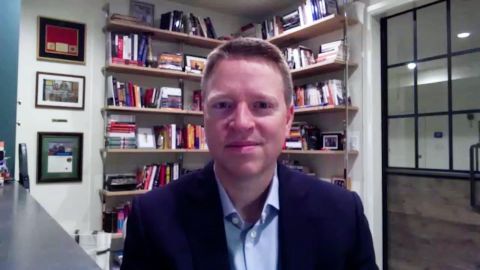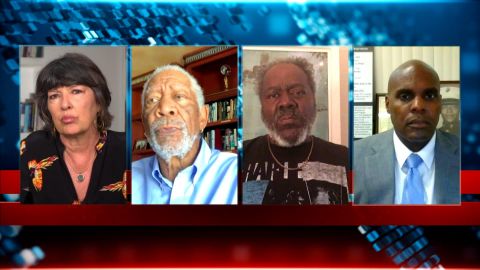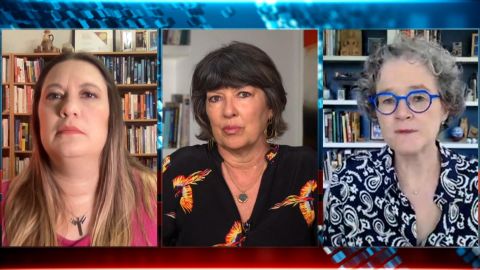Read Transcript EXPAND
CHRISTIANE AMANPOUR: So, I want both of you to weigh in on this, because, clearly, Kenneth Chamberlain, your father was calm, polite. He said over and over again. I don’t need help. Get away from my door. And indeed the actual company that was monitoring him had called off, at his request, the intervention. And yet the police simply did not know how to de-escalate, and it — and with tragic consequences. Kenneth Chamberlain Jr., you were on the phone with your father in real time. And this whole film unfolds in about real time, as about an hour-and- a-half to two hours. What — you didn’t go there. He didn’t want you to go. He kept trying to say to you he could take care of it himself. Take us back to that moment.
KENNETH CHAMBERLAIN JR., SON OF KENNETH CHAMBERLAIN: So, that piece in the film, it’s something that was included. Interestingly enough, when the company told White Plains Police Department to contact me, they refused to contact me. So I had no clue and no idea what was actually taking place with my father that morning. Had they simply called me, I could have gotten to the — to his apartment on time. And maybe, just maybe my father would be alive today.
AMANPOUR: And we’re about to get Morgan Freeman up on the satellite. He obviously is a movie star, but also the executive producer of this film. Morgan Freeman, can you hear me?
MORGAN FREEMAN, ACTOR/EXECUTIVE PRODUCER: I can. Can you hear me?
AMANPOUR: Fantastic. Yes, I can. So we’re glad to have you along with Frankie Faison and Kenneth Chamberlain Jr. We have been talking about the origins of this film. What is it about it? There are many, many innocent black men who have been killed and black women by the police out of control. What was it about this one that made you want to put your name and your executive producing title behind it?
FREEMAN: I think this is the only one that somebody decided to make a movie of. So we have not actually seen — we have seen actual events, but we’ve not seeing it dramatized as a movie that would go into the theaters, you could see it over and over again. And when we saw it last year, we decided that this needs all the help it can get to get out to the public, that it needs to be seen. We need to digest this kind of information and figure out how we can make use of it. What kind of a lesson can we impart here with this kind of — with this film? It’s important, we feel, that these kinds of things be dramatized more.
About This Episode EXPAND
Tara Haelle; Dr. Jeanne Marrazzo; “The Killing of Kenneth Chamberlain;” Matt Pottinger
LEARN MORE


